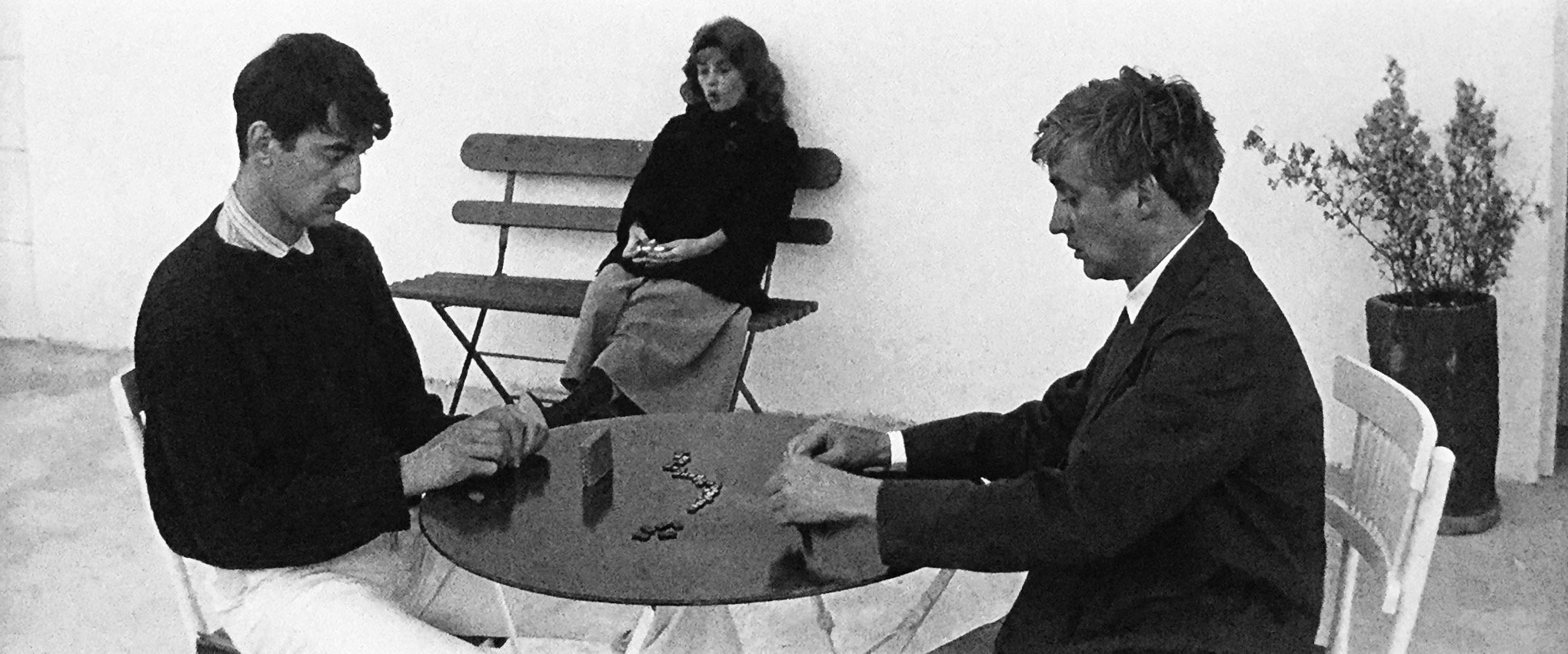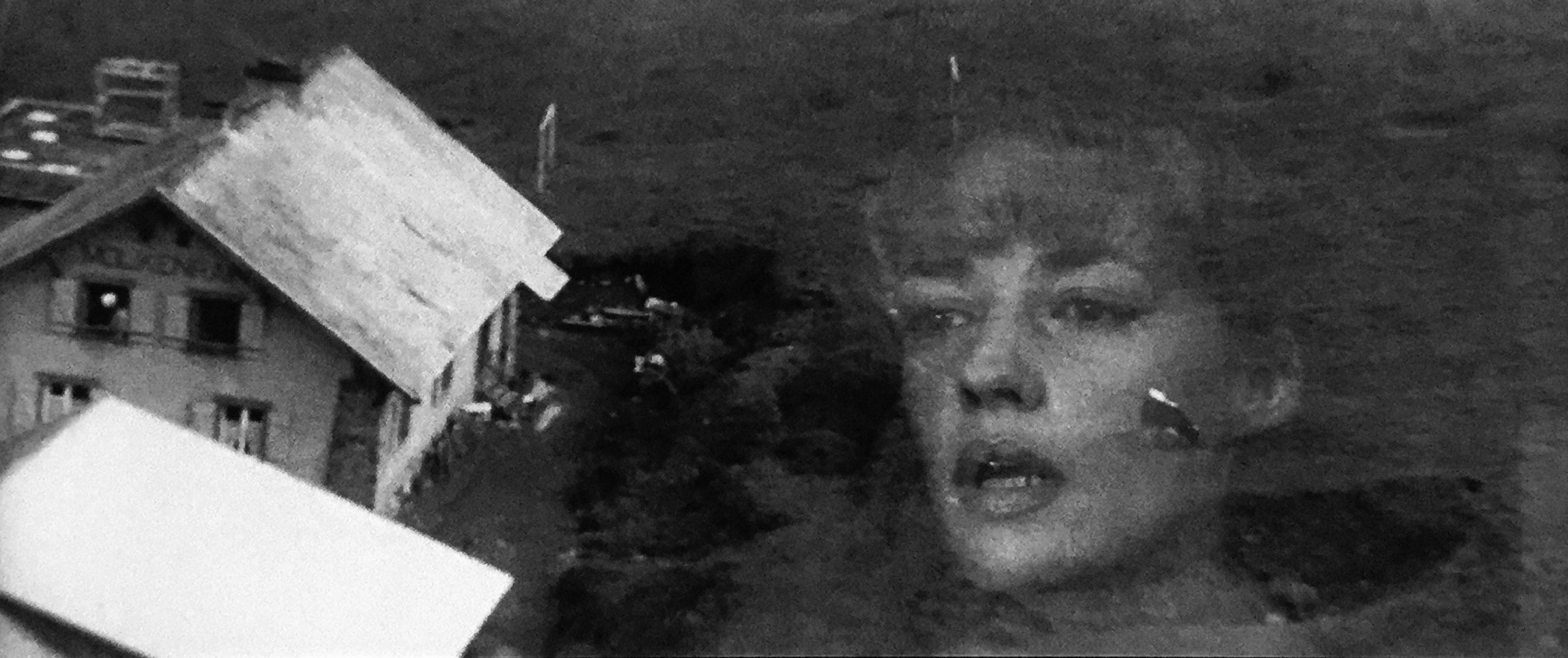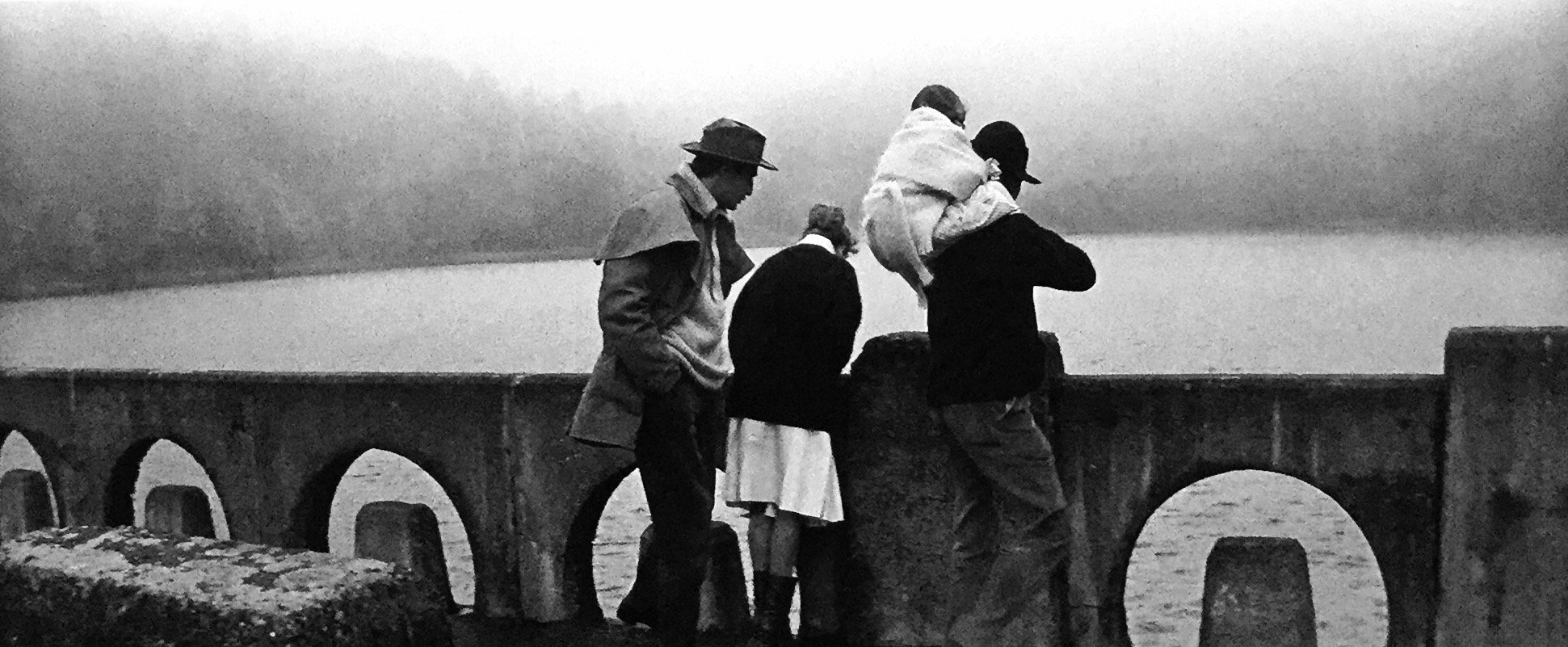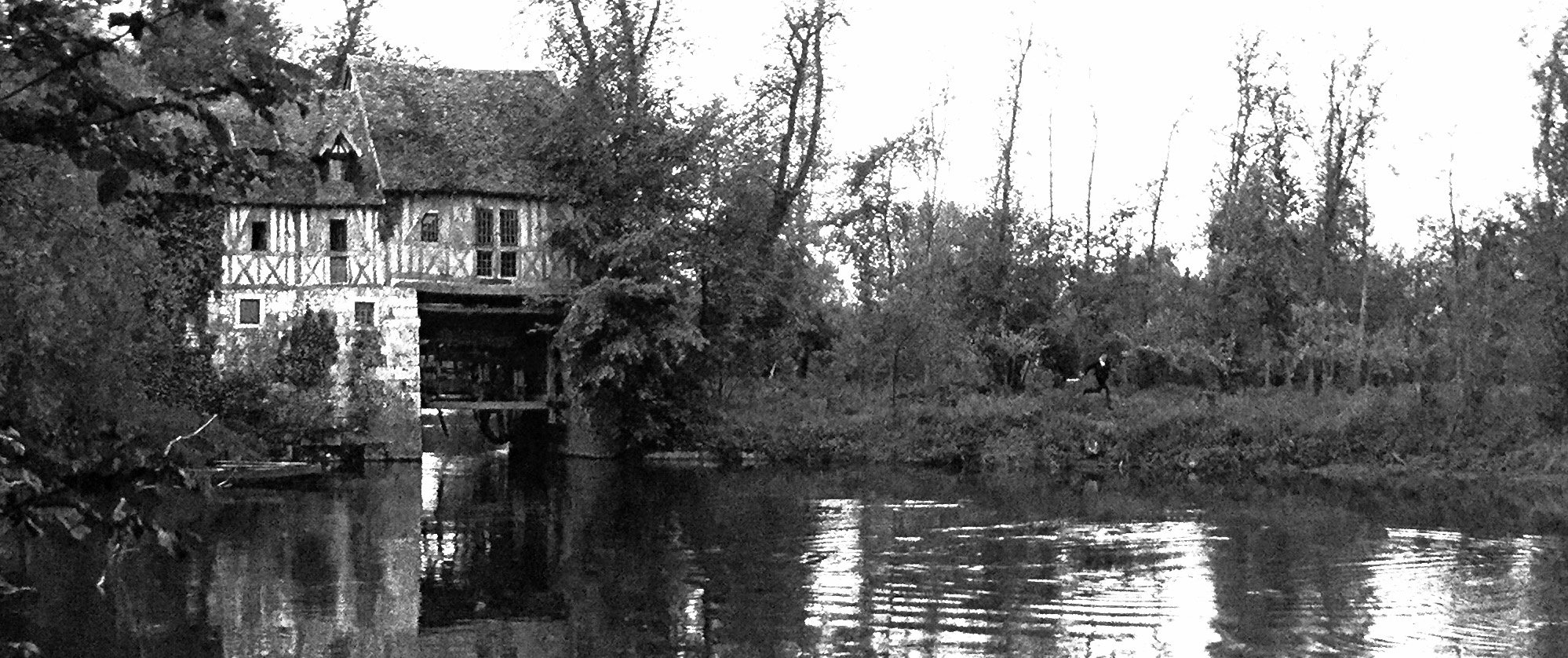Truffaut had been working on bringing this story, based on a partly autobiographical novel of the same title by Henri-Pierre Rochés, for several years and after reading it in the mid 1950s. What is interesting to me is the reception that movie received. While the themes touched upon should have been highly controversial in my opinion, they apparently survived as a celebration of love and femininity, so i will try my best to evaluate what i am talking about.

It is basically a "menage a trois" stretched over 3 decades from before the world war 1 and until around the second world war. Jules (Oskar Werner) and Jim (Henri Serre) are very good friends and share many interests. They are young and looking for women and when they come across Catherine (Jeanne Moreau), a tomboyish, modern and fresh young woman, they sort of both fall in love with her. But she marries Jules, just before the start of the war. Both men are caught up in the war and Catherine give birth to a daughter soon after and the child is around 4 years old when they get back to reality. Jules and Catherine live out in the country side in Austria and Jim moves in to live with them also.
Jules and Catherine´s marriage is cracking at the seems and Catherine gets closer and closer to Jim. Jules is afraid of loosing Catherine completely and supports that they in time divorce so Jim can marry her. That seems to be a good idea at first until Catherine discover that Jim cannot give her kids, and therefore Jim leaves them to live in Paris. Catherine turns back to Jules once again and they move to France to live in and old watermill in the country side. A few years later Jules and Jim bump into each other and when Catherine finds out they are in contact again, she tries to convince Jim to come back, but when he declines she pulls a gun on him to kill him, but he wrestles it from her and escapes. years later they meet again all three. Catherine asks Jim to come with in a car since she has something she wants to show him. She then drives the car over a crumbled bridge, and they both die, while Jules watches from the distance. Jules watches the two getting cremated and put away in their urns.

Now, the title of the movie refers to the two men, but really this is about women in general. It is about the way that Truffaut excuses female hypergamy by enveloping it in a glow of romance. Basically women want to have two men. One who has alfa genes, that shows assertive, dominating and possibly violent features and one who has beta genes, who can be a gentle and submissive to finance and take care of her children. They know that alfa males will not stay around to take care of kids because all women are throwing their vaginas at them and will lure them away. So this basic female trait shows up everywhere in this tale.
Catherine treats Jules like trash. She constantly asks him to get things for her and if he does not obey she literally hits him in the face and then laughs afterwards. An evening when the three of them stroll along the river at night time, Jules extends some literary quotes about women and their general immoral and irrational behavior. Then what does she do? She jumps in the river after calling them both idiots and expecting them to save her. These happenings are what is usually called "shit-tests". Tests women make to check how assertive and manipulative a man is. If he can be manipulated and tends her every need anyway, he is a beta male. If he do not care but extend a sense of superiority, she knows she has found an alfa male. It is as simple as that. Shit-testing is an evolutionary selection technique.
A scene that illustrates this perfectly is when they race each other on the bridge. She makes a false start but the guys who could easily out run her anyway, let her win. They are both pathetic beta males that can be used to compete against each other to test their usability as either alfa or beta male. When we discover that Catherine has had extramarital affairs during their first years together after the war, Jules off course blames himself, not Catherine. He is the ultimate beta male and her hypergamic genes makes her go and have sex with more alfa like males, since she knows Jules will stay anyway.
Jules and Jim are both beta-males, we know that by now. Otherwise there is no way in hell they would stay together in this triangle with a manipulative and cuckolding woman like Catherine. When she finds out that Jim cannot produce children, she turns away from him and back at Jules, because he suddenly looks much more alfa than Jim to her and she actually tries to shoot him at one point. Jules takes her back like the good, serving little beta he is and takes care of her and the child without even mentioning her completely deranged killer instinct. And that may not have been the best decision, because in her irrational hate of the two beta males she eventually realizes, that she is stuck with, she kills herself AND Jim, because she would rather destroy their friendship, make her child motherless and kill herself, than accept her self-inflicted fate.
Is this supposed to be romantic and beautiful love? I must have missed something, because i found her a narcissistic, manipulative and spoiled little brat, who takes advantage of two mens love for her and in the end destroys them. Thank You no, Sir. If that is love, I´ll pass ! As realistic and honest as Truffaut is when it comes to boyhood and male existence, as irrational and manipulated is his acceptance of irrational and manipulative female behavior.

I am not saying that this makes it a bad movie, i am just pointing out that the narration and everything points towards excusing women for their immoral behavior, and i find that especially weak and pandering for a director of Truffaut´s nature and stature. I guess the old quote from Voltaire is eternally valid. "If you want to know who rules you, find out who you are not allowed to criticize".
There are off course many cinematographic traits that is interesting but to be honest they usually feels inserted for the sake of having them there and a bit out of place in a "romantic" movie like this. The long time spent in the Austrian countryhouse felt stretched to me and then sometimes, the cutting gets all frantic and everything, including the narration has to go real fast. There is a tendency to not let the viewer get time to, lets say, analyze the mood of the character, but the narration and the cutting moves it too fast ahead to a new scene that does not really bring the story further fast enough. There are some scenes that are really well shot and some that are inventive and daring. But to me the underlying shrouding of the true nature of women in the opposite light, cannot be overlooked by a few artistic director tricks. This is a difficult movie to advise on, because it depends very much of how you "see" it. If you think i am "over-reacting" just try and switch gender for the characters and envision how that would look, and be received by the public

Rating: 5/10
